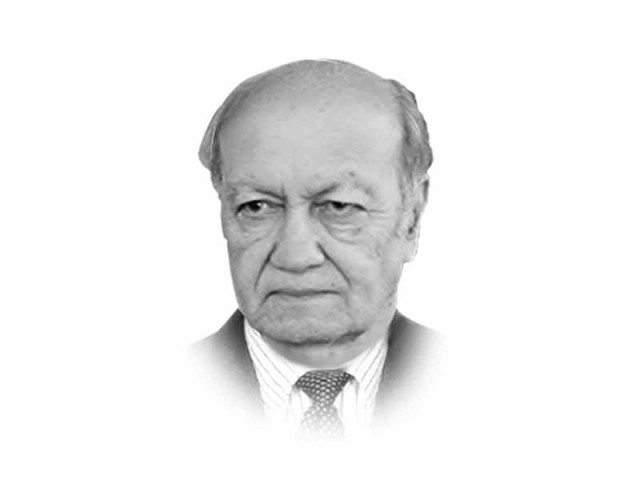Dealing with the TTP
A narrative based on self-denial can never be a prescription for dealing with the Taliban or other militant groups.

The writer is a retired lieutenant general of the Pakistan Army and served as chairman of the Pakistan Ordnance Factories Board
In the fight against terrorism and in counter-insurgency operations, the government needs the support of the people for which a forceful national narrative is a prerequisite. As of now, the government has no narrative, not even a counter-narrative. Instead of being on the back foot, it should develop a forceful narrative that exposes the atrocities of the TTP and the damage that its terrorist activities have done to Pakistan and to its innocent citizens. To add to the confusion, the vacuum is exploited by Imran Khan and other religious leaders by placing blame on the “Americans, Raw, or foreign agents”. A narrative based on self-denial can never be a prescription for dealing with the Taliban or other militant groups.
The country today stands deeply polarised and equally confused as to where its future lies. Let me at the outset clarify the issue is not about denying freedom of tribal life or the martial traditions of tribal societies that have been the hallmark of the people of Fata. This should not only continue but be preserved. On the contrary, everyone must be allowed to live their lives within the constitutional and democratic framework of Pakistan and no one group allowed to impose its will on others in any part of Pakistan including Fata. It is also not a tussle between the centre and periphery. In fact, they should strengthen and reinforce each other through mutuality of interests.
Clearly, events of 9/11 exacerbated the effects of extreme neglect of Fata for decades. Pakistan’s subsequent association with the US in the “war on terror” acted as a catalyst and made matters worse. Education, health and physical infrastructure in the form of roads, communication networks and employment opportunities for the youth, etc. should now be the government’s top priority. But this is not what the TTP and other allied groups are demanding. On the contrary, they are destroying the existing schools, killing health workers and are disinterested in development of roads and opening of their areas to the world.
More problematic is that they are demanding concessions and changes that, if implemented, will transform Pakistan into a pariah state. Their ambitions and goals are both national and transnational, and unlike the government, they are very clear on how they want to achieve them.
The initial demands of the TTP are release of prisoners and establishment of peace zones. It is possible the government may agree to the release of some prisoners who are not charged with grave and heinous crimes either publicly or secretly, as part of a confidence-building measure. This goodwill gesture should be reciprocated from the Taliban by the release of Professor Ajmal Khan, Shahbaz Taseer, Ali Haider Gilani and several other innocent persons that are held in their custody.
The government will have to be very careful while conceding to the proposal for the establishment of a peace zone, for it could be a cover by the TTP to consolidate and expand their hold in South Waziristan. Moreover, any area where the government has no control can always be used as a sanctuary for launching attacks within Pakistan or across the border with serious consequences for internal security and foreign relations.
The demand that troops be withdrawn from Fata is equally untenable, as the army is needed both for internal security as well as border management.
By giving any undue concessions to the TTP the government would be setting precedents that will invite similar demands from other militant groups. It is already becoming clear that groups like Jamaatud Dawa and other radical outfits are getting emboldened and even posing as though they are the true defenders of the Islamic Republic. It is so sad that on March 23 the government for fear of the militant threat has not been able to hold the military parade for years. In this way, the militants have cleverly succeeded in ensuring that the bond that ties the armed forces with the populace is weakened.
Almost every aspect of Pakistani life has been affected by the intertwined threat of terrorism and radicalism. Most acts of terror go unpunished and are forgotten. While we take pride in being a nuclear power, we fail to acknowledge that we have one of the poorest records in human security. No other nuclear country, (not even North Korea) faces a continuous and expanding terrorist threat as we do, knowing full well that the intersection of terrorism and nuclear is a lethal combination.
The question is also fundamental — do we want to regress into the dark ages by giving into the Taliban’s philosophy or move towards a brighter future with the rest of the world by influencing them to modify their behaviour ? The choice is ours.
Published in The Express Tribune, April 2nd, 2014.
Like Opinion & Editorial on Facebook, follow @ETOpEd on Twitter to receive all updates on all our daily pieces.















COMMENTS
Comments are moderated and generally will be posted if they are on-topic and not abusive.
For more information, please see our Comments FAQ